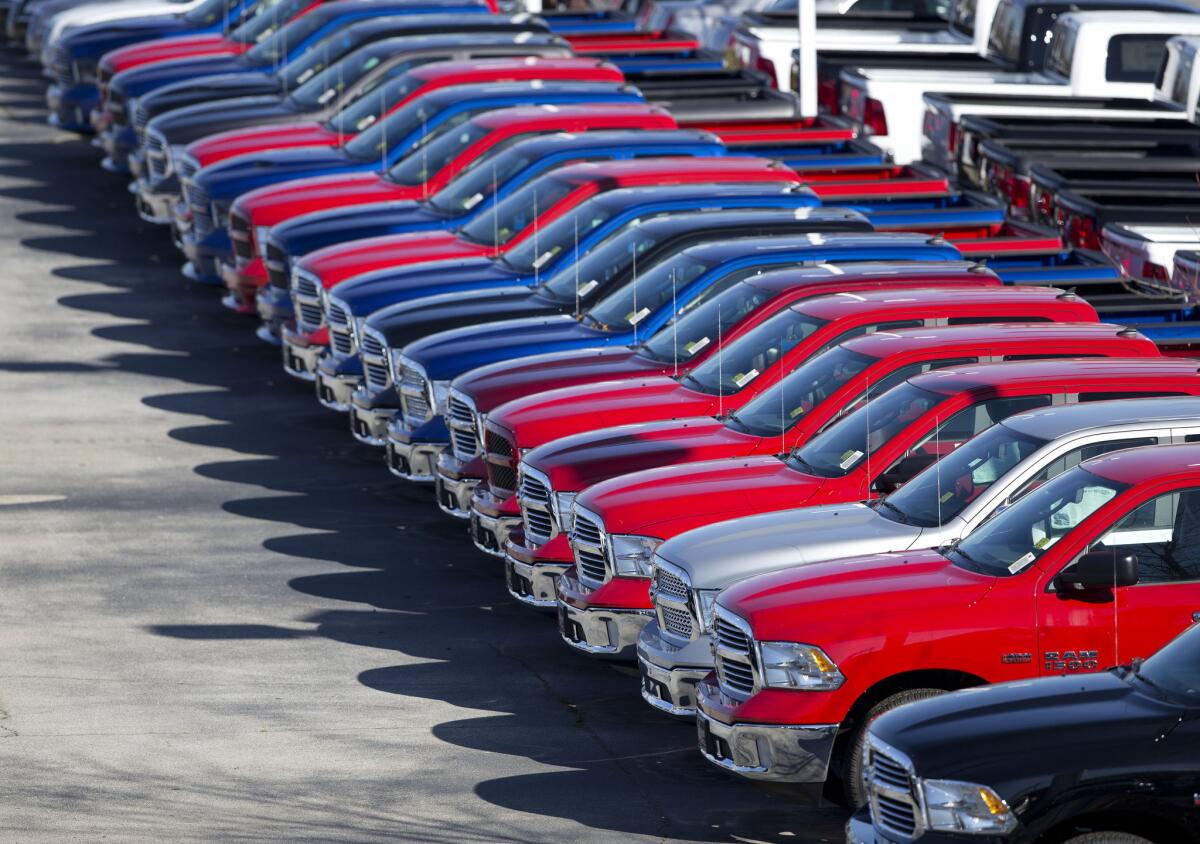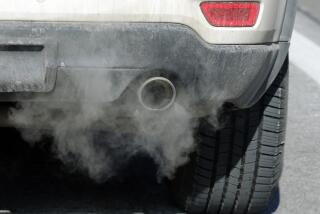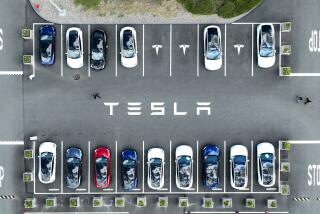Scandal puts dent in Volkswagen sales

A beleaguered Volkswagen employed deep discounts just to maintain flat sales in October — while the industry boomed, with a double-digit surge over last year.
In the first full month since it admitted cheating on U.S. emissions tests for diesel cars, the automaker might have done worse. It has typically relied on diesels — sales of which are now suspended — for nearly a quarter of all deliveries.
Analysts said the month’s sales came at a tremendous cost as VW piled discounts on its cars and wrote dealers checks to help them cope with the crisis.
In mid-September, as the scandal broke, VW was already offering consumers average discounts of about $3,720 on its aging lineup of models, according to car price information company Kelley Blue Book, which had not yet tallied October discounts.
VW’s flat sales (actually a tiny increase, of 74 vehicles, over last year) came as the industry at large sold almost 1.5 million cars, a huge year-over-year gain that averaged 13.6%. The industry is on track to sell about 17 million vehicles this year, a near-record showing and the best since 2000.
“To have sales up only a fraction of a percent in this environment is pretty bad,” said Karl Brauer, an analyst at Kelley Blue Book. “It is like you are the only person on the team hitting singles when everyone else is hitting home runs.”
The German automaker could face years of struggle in winning back consumer trust and industry market share, analysts said.
Beyond a tarnished reputation, the automaker faces potentially tens of billions of dollars in regulatory penalties, lawsuit judgments and recall costs.
VW has admitted it installed software to fool federal emissions tests. The so-called defeat device — installed in at least 482,000 vehicles in the U.S. and 11 million worldwide — adjusted diesel engine performance during testing conditions, then allowed up to 40 times the limit of smog-creating nitrogen oxide pollution during normal driving.
The rest of the industry has seen remarkable gains off of already strong sales last year.
General Motors, Ford, Chrysler, Toyota and Nissan all posted double-digit sales increases. Some small manufacturers did particularly well. Volvo sales soared 86.9%, Mazda 35.4% and Subaru 20%, according to Autodata Corp., an industry research firm. Even the once-struggling Mitsubishi joined the boom with sales soaring nearly 20% for the month.
“There are really great fundamentals for sales,” said Mark Wakefield, head of the automotive practice at consulting firm AlixPartners. “Employment is rising. There is very affordable credit. And after almost a year of lower gas prices, consumers think it will stick around, and they are buying bigger vehicles.”
VW sales in October might have looked worse, but they were compared with a particularly weak October a year ago, said Ed Kim, vice president of industry analysis at industry consulting firm AutoPacific.
“Last year they were still in the midst of launching the Golf, and Passat sales were flagging,” he said.
“The VW brand is going to take a lot of rebuilding,” Kim said. “It could take significant effort and years to rebuild its reputation among American buyers.”
A Kelley Blue Book analysis found that the average transaction price for new VWs fell 3.6% in October from September, when the automaker admitted its cheating. The automaker is having to lower its prices to sell cars, Kelley concluded.
Prices at other automakers continue to climb. The estimated average transaction price for light vehicles in the United States was $34,023 in October, an increase of 1.4% from October 2014 and up 0.7% from last month, Kelley said.
So far, the cheating scandal has done little damage to Audi, VW’s luxury brand. Audi’s U.S. sales rose 16.8% to 17,700 vehicles last month.
It was its best-ever October. Moreover, Audi has sold 165,103 vehicles so far this year, more than what the brand sold in an entire year just two years ago.
Previously, only the Audi A3 was implicated in the cheating scheme. But on Monday, the Environmental Protection Agency and California Air Resources Board alleged that other vehicles, including the diesel versions of the 2016 Audi A6 Quattro, A7 Quattro, A8, A8L and Q5 have software that fools emissions tests.
The agencies also said the diesel 2014 VW Touareg and the 2015 Porsche Cayenne cheat emissions tests. Volkswagen, which also owns Porsche, said it has not cheated on tests of these cars with the bigger diesel engines.
Nonetheless, Porsche on Tuesday halted sales of model year 2014 through 2016 Cayenne diesel sport utility vehicles until further notice.
“We are working intensively to resolve this matter as soon as possible,” the brand said in a statement. “Customers may continue to operate their vehicles normally.”
Kim expects that Audi will have to do the same with its diesel cars, and that will slow its sales. But he noted that both Audi and Porsche aren’t as dependent on diesel sales as the Volkswagen line, so it will have less of an effect.
There were other signs of trouble at VW on Tuesday.
The German automaker said that its internal investigation into the emissions test rigging scheme discovered “irregularities” on an additional 800,000 vehicles, mostly diesel autos.
VW underestimated fuel consumption for these cars and is now notifying regulatory authorities in the countries where they were sold. A spokeswoman for VW’s U.S. sales arm said the company doesn’t believe the vehicles were sold here.
“The Board of Management of Volkswagen AG deeply regrets this situation,” said Matthias Mueller, Volkswagen’s chief executive.
Twitter:@latimesjerry
More to Read
Inside the business of entertainment
The Wide Shot brings you news, analysis and insights on everything from streaming wars to production — and what it all means for the future.
You may occasionally receive promotional content from the Los Angeles Times.











